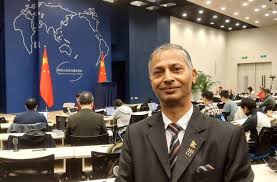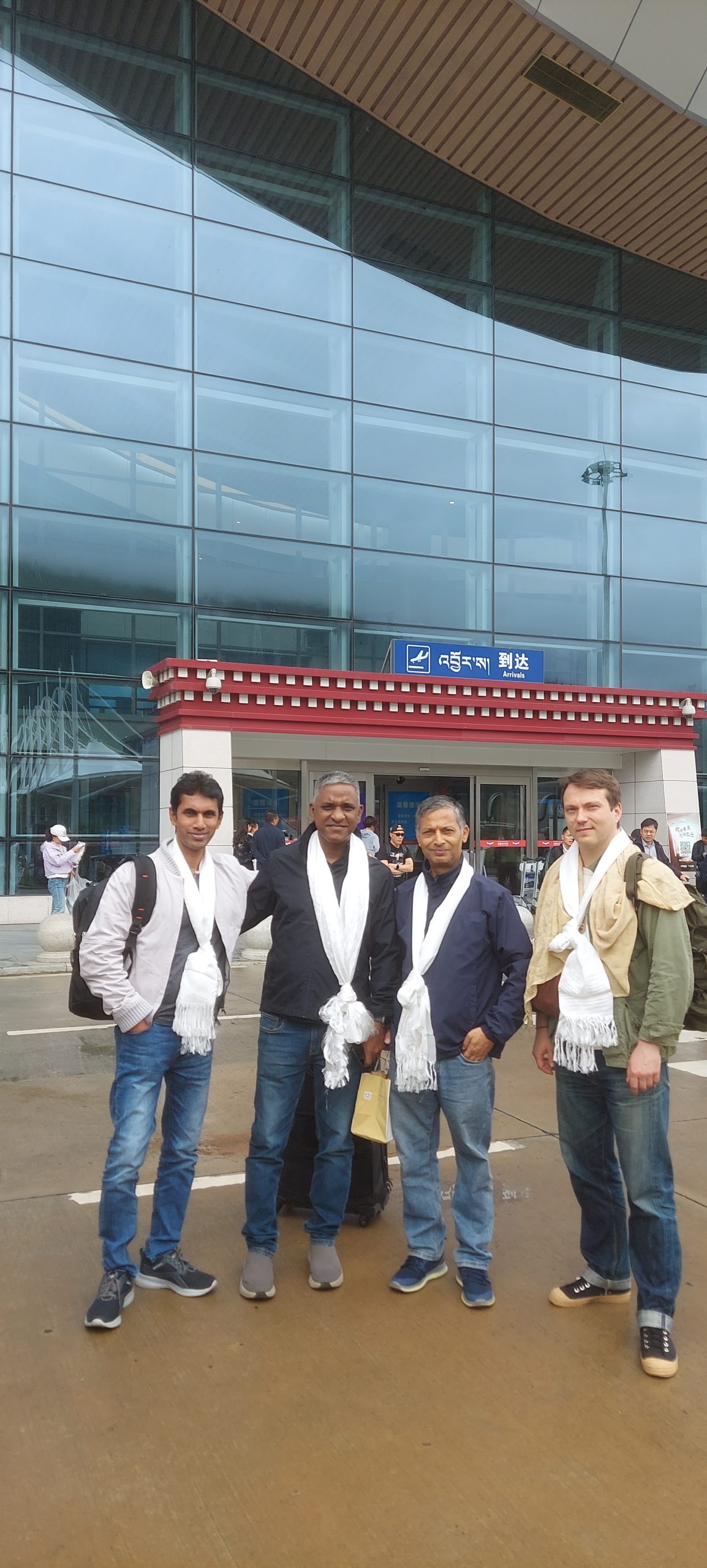
By Janardan Subedi
Those who set my house ablaze, I can't help but worry about you. It's not because I’m a saintly figure practicing compassion. No, it’s a stark reality: when the wind changes, your house will be engulfed in flames too—perhaps even faster than mine. My walls were built of brick and acceptance, while yours are constructed from lies, inflated CVs, receipts of corruption, and a lifetime of favors you conveniently forget. The wind doesn’t discriminate based on ideology. It just blows.
But don’t confuse my worry with kindness. It’s not sympathy. It’s sociology. Fire in this country is a migrating species; it doesn’t stay loyal, doesn’t obey boundaries, doesn’t care who lit it first. Flames move freely—just like rumors, political promises, and new hashtags created by Gen-Z activists every three days. Everyone thinks they’re safe until they smell smoke in their own living room.
When my house was burning, the neighbors didn’t bring water. They brought opinions. One man, holding a glass of expensive whiskey he didn’t pay for, told me: “The system works. Be patient.” He said it with the confidence of someone whose life had never been touched by the system, except through scholarships meant for low-income people. Another neighbor blamed karma and said, “Maybe your house was meant to burn.” And the ward chairman—always ready with a committee—said he would launch an investigation. That committee, of course, never met, never wrote a report, and somehow never died. In Nepal, committees last longer than marriages.
We've turned fire into a ritual in our nation. We burn down houses, institutions, and reputations with equal fervor. We set ablaze effigies of corrupt leaders at noon and vote for them again in the evening. We ignite tires to protest corruption and then use the same funds that caused the corruption to conduct workshops on transparency. This cycle would be comical if it weren’t suffocating us. It's high time for a change.
As the ashes of my house ascended into the sky, the smoke wafted towards Singha Durbar—the grand museum of paperwork—where powerful men with archaic mindsets still believe a stamp can absolve sins. They saw the smoke, called a press conference, condemned 'the incident,' and resumed approving contracts for their relatives. Condemnation has become our national pastime. We condemn faster than we build, teach, reform, or even think. It's a ludicrous state of affairs that needs to change.
Meanwhile, the mayor of my town, who had given me a speech about resilience, was purchasing a new SUV—a “disaster management vehicle,” he called it—probably to survey future disasters like mine from the comfort of a leather seat.
The people who burned my house weren’t villagers acting out of fury. No, these were educated, influential, patriotic citizens—the Facebook kind of patriots, fluent in jargon but allergic to accountability. They quoted the constitution while pocketing tenders. They called themselves change-makers, yet they only changed their party flags every election cycle. Hypocrisy is the most efficient institution in the country.
At the top, we have leaders who lecture about national dignity while quietly arranging student visas for their children abroad. In the middle, bureaucrats pray to Ganesh before signing bribe documents. And at the bottom, citizens like me have perfected the art of complaining without self-reflection. In this ecosystem, everyone is burning something—dignity, time, or the entire nation—and still calling it progress.
Our democracy functions like a loan we took from the West without reading the repayment terms. We borrowed big words like transparency and accountability—and then stuffed them into speeches while running politics like a caste reunion. We live in a “khutruke democracy”—tiny savings of freedom we withdraw occasionally to pay for large humiliations.
Baluwatar has become a stage where, every few months, a new prime minister auditions for the role of national redeemer. Cabinets reshuffle, the same faces return with new arrogance, the same journalists clap politely, and donors write optimistic reports about Nepal’s democratic “maturity.” It’s a beautiful cycle of self-deception, funded by aid and lubricated by local greed.
When my house burned, the NGO crowd arrived faster than the fire brigade. They came with banners, cameras, and a deeply spiritual commitment to documentation. They thanked me for my “story,” as if losing my house were a fellowship opportunity. They turned my tragedy into a resilience workshop. They interviewed neighbors, took photos, discussed a potential grant proposal titled “Flames of Hope,” and left—leaving behind nothing but hashtags and the faint smell of sanitizer. In today’s Nepal, suffering has a price, and tragedy is a renewable resource.
Even the gods seem confused. Contractors flock to temples for bids on renovation tenders, not prayer. Our Supreme Court functions like a shrine of sacred postponements. Police stations resemble real estate offices, where influence is currency. The Army stands silent, polished, and professionally detached—guarding the country not from enemies but from accountability.
And then there is Melamchi, our proud national metaphor. A river that appears, disappears, gets inaugurated multiple times, and then floods us with shame. Every project here has three predictable phases: proposal, corruption, and collapse. And we pay for all three. The officials involved blame “natural disaster,” forgetting that the real disaster is artificial, drafted in PowerPoints, approved in secret meetings, and executed with patriotic negligence.
Those who burned my house think they are fireproof. They live in gated bubbles, surrounded by guards, lawyers, and moral air fresheners. But corruption has an expiry date, and lies have a melting point. The wind is already shifting. The wind shifts direction now—better be prepared.
The truth is, the greatest tragedy isn’t that elites burned my house. It's that ordinary citizen helped them. We cheered the wrong heroes, normalized absurdity, and replaced conscience with convenience. We turned political anger into memes and morality into merchandise. Every five years, we light the same candles and call it hope. Nepal has become a republic of resignation—everyone knows what’s wrong, but nobody wants to get drenched trying to put out the fire.
Still, I worry about those who burned my house. Not because they hurt me, but because they live under the same fragile sky. When the wind shifts—and it always does—they will inhale their own smoke. When the next scandal erupts, when the next protest blocks their SUV, when the next reform exposes its own rot, they will realize the fire they thought they controlled was only waiting for a breeze.
When that day comes, I won’t seek revenge. I will stand quietly, maybe even offer a bucket of water—not to save them, but to see whether they remember what decency feels like. Because the tragedy of this nation isn’t that houses burn but that hearts no longer do.
So yes, to those who burned my house: enjoy the fire while it warms you! The wind has started moving. And it never blows in the same direction for too long.













Comments:
Leave a Reply